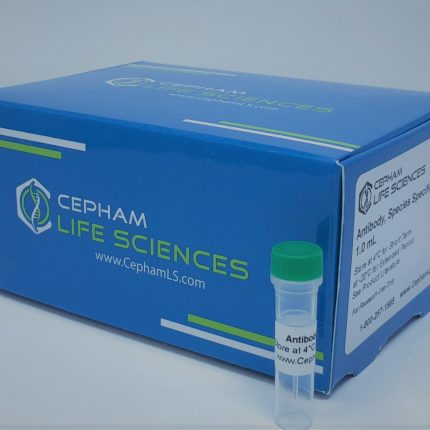Aliases
PKCB; PRKCB1; PRKCB2
Antibody Type
Polyclonal Antibody
Uniprot ID
Swiss-Prot: P05771
NCBI Protein: NP_002729.2
Immunogen
Peptide sequence around phosphorylation site of threonine 641 (E-L-T(p)-P-T) derived from Human PKCb
Raised In
Rabbit
Species Reactivity
Human Mouse Rat
Tested Applications
WB IHC IF Recommended dilution: Predicted MW: 82kd, Western blotting: 1:500~1:1000, Immunohistochemistry: 1:50~1:100, Immunofluorescence: 1:100~1:200
Background / Function
Calcium-activated and phospholipid-dependent serine/threonine-protein kinase involved in various processes such as regulation of the B-cell receptor (BCR) signalosome, apoptosis and transcription regulation. Plays a key role in B-cell activation and function by regulating BCR-induced NF-kappa-B activation and B-cell suvival. Required for recruitment and activation of the IKK kinase to lipid rafts and mediates phosphorylation of CARD11/CARMA1 at ‘Ser-559’, ‘Ser-644’ and ‘Ser-652’, leading to activate the NF-kappa-B signaling. Involved in apoptosis following oxidative damage: in case of oxidative conditions, specifically phosphorylates ‘Ser-36’ of isoform p66Shc of SHC1, leading to mitochondrial accumulation of p66Shc, where p66Shc acts as a reactive oxygen species producer. Acts as a coactivator of androgen receptor (ANDR)-dependent transcription, by being recruited to ANDR target genes and specifically mediating phosphorylation of ‘Thr-6’ of histone H3 (H3T6ph), a specific tag for epigenetic transcriptional activation that prevents demethylation of histone H3 ‘Lys-4’ (H3K4me) by LSD1/KDM1A. Also involved in triglyceride homeostasis. Serves as the receptor for phorbol esters, a class of tumor promoters. Zhang Y, et al. (2006) Mol Cell Biol ; 26: 6748-6761 Castoria G, et al. (2004) Mol Cell Biol ; 24: 7643-7653 Marcil J, et al. (1999) Biochem J ; 337:185-192 Bornancin F, et al. (1996) Curr Biol ; 6:1114-1123.
Conjugate
Unconjugated
Storage Buffer
Supplied at 1.0mg/mL in phosphate buffered saline (without Mg2+ and Ca2+), pH 7.4, 150mM NaCl, 0.02% sodium azide and 50% glycerol.
Form
liquid
Storage
Shipped at 4°C. Upon delivery aliquot and store at -20°C or -80°C. Avoid repeated freeze.
Purity
Antibodies were produced by immunizing rabbits with synthetic peptide and KLH conjugates. Antibodies were purified by affinity-chromatography using epitope-specific peptide.
Modification
Phospho-Thr641







